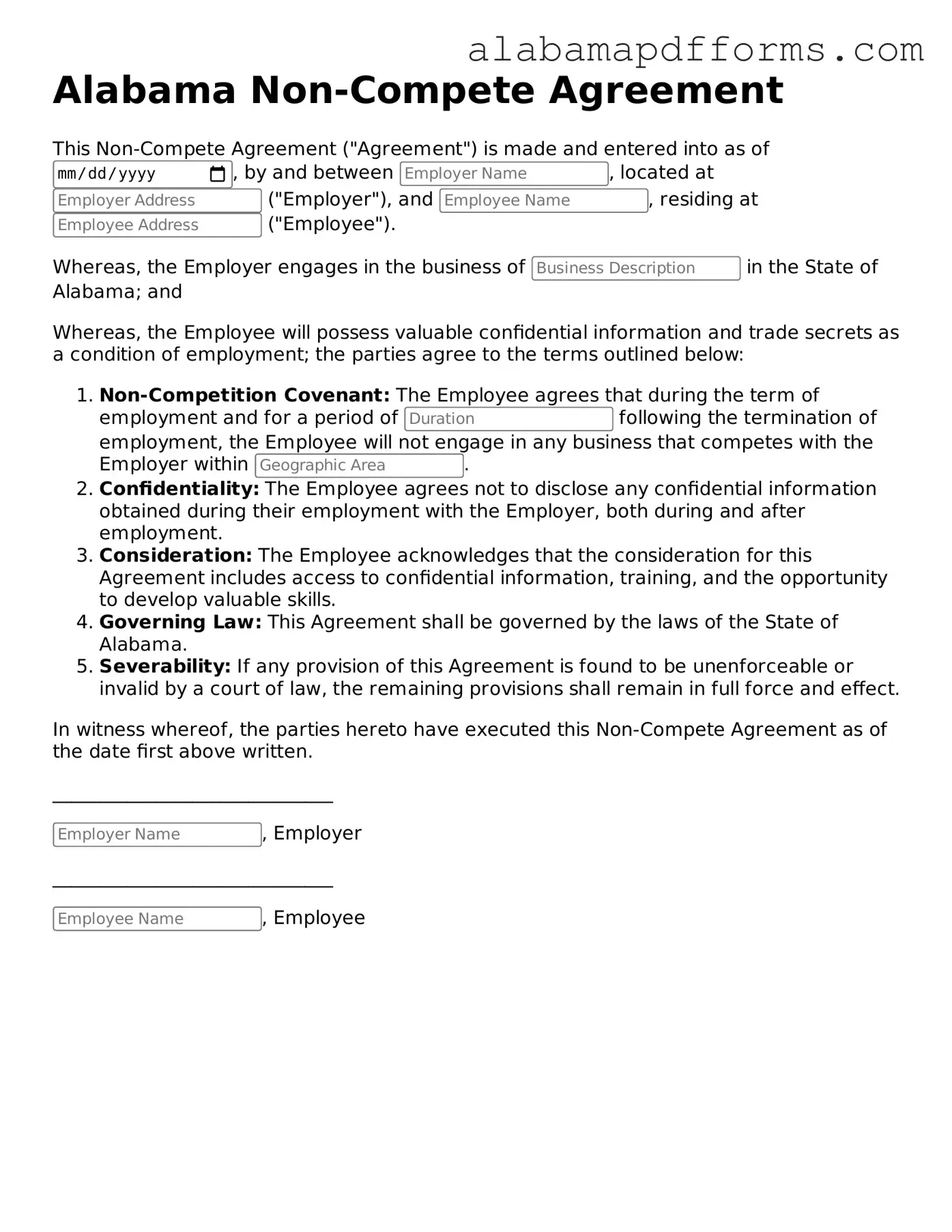A Non-disclosure Agreement (NDA) is often compared to a Non-compete Agreement because both are designed to protect sensitive information. While a Non-compete Agreement restricts an individual from working with competitors, an NDA focuses on keeping proprietary information confidential. Businesses use NDAs to ensure that employees or contractors do not share trade secrets or other confidential information with outside parties. Both documents aim to safeguard a company’s interests but do so in different ways.
A Non-solicitation Agreement is another document that shares similarities with a Non-compete Agreement. This type of agreement prevents an employee from soliciting clients or customers after leaving a company. While a Non-compete Agreement restricts employment opportunities with competitors, a Non-solicitation Agreement specifically targets relationships with existing clients. Both aim to protect a company’s customer base and market share, but they do so through different approaches.
An Employment Agreement often includes clauses that resemble those found in Non-compete Agreements. This document outlines the terms of employment, including job responsibilities, compensation, and any restrictions on future employment. Employers may incorporate Non-compete clauses within Employment Agreements to ensure that employees cannot easily transition to competitors. Both documents serve to clarify expectations and protect the employer’s interests, but the Employment Agreement is broader in scope.
A Do Not Resuscitate Order is an essential document that ensures an individual's end-of-life wishes are respected, especially in medical emergencies. This makes it crucial for medical personnel to understand the patient's preferences regarding life-sustaining measures. To obtain the necessary forms for this process, you can visit Colorado PDF Forms, where you will find specific resources to assist you in creating a legally sound DNR order.
A Partnership Agreement can also bear similarities to a Non-compete Agreement. In a partnership, individuals work together towards a common business goal, and the agreement may include clauses that restrict partners from competing against each other during or after the partnership. This helps maintain trust and cooperation among partners. While a Non-compete Agreement is typically between an employer and employee, a Partnership Agreement addresses competition among business partners.
A Confidentiality Agreement, much like a Non-disclosure Agreement, shares the goal of protecting sensitive information but may also include non-compete clauses. This document is often used when two parties are discussing a potential business relationship. It ensures that both sides will keep shared information confidential and may restrict one party from engaging in competitive activities. The focus remains on protecting proprietary information while also addressing potential competition.
A Franchise Agreement often contains Non-compete clauses to protect the franchisor’s brand and business model. Franchisees are typically restricted from opening competing businesses within a certain geographic area for a specified time. This helps maintain brand integrity and customer loyalty. While a Non-compete Agreement generally applies to employees, a Franchise Agreement applies to independent business owners operating under a larger brand.
An Independent Contractor Agreement can resemble a Non-compete Agreement when it includes clauses that limit the contractor's ability to work with competitors. This type of agreement outlines the terms of the contractor’s work and may specify that they cannot provide similar services to competing businesses during or after the contract period. Both documents aim to protect business interests, but the Independent Contractor Agreement is tailored for freelance or contract work.
A Shareholder Agreement may also include Non-compete provisions, especially in closely held corporations. This agreement governs the relationship between shareholders and may restrict them from starting competing businesses or soliciting clients of the corporation. By including Non-compete clauses, the agreement seeks to protect the company’s market position and ensure that all shareholders are aligned in their business interests.

